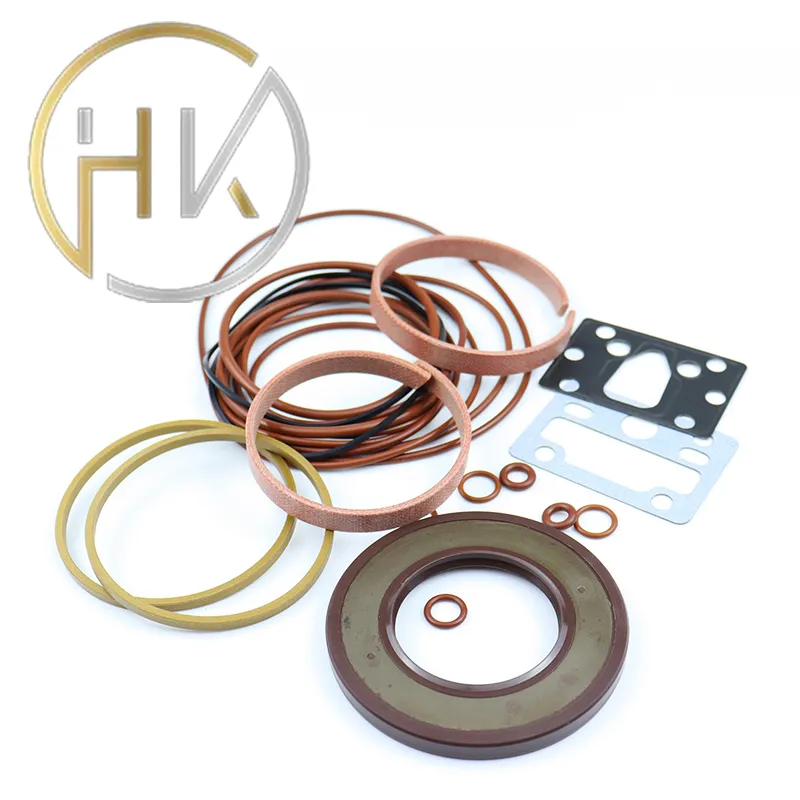12 月 . 13, 2024 14:32 Back to list
hydraulic pump seals
The Importance of Hydraulic Pump Seals
Hydraulic pumps are critical components in a vast array of industrial applications, ranging from manufacturing to construction and automotive industries. As these pumps function to move fluids under pressure, they rely on efficient seals to maintain performance and prevent leaks. Hydraulic pump seals are not merely accessories; they play a crucial role in ensuring the operational efficiency, safety, and longevity of hydraulic systems.
Understanding Hydraulic Pump Seals
Hydraulic pump seals are specialized components designed to prevent the leakage of hydraulic fluid. They are typically found in various parts of the hydraulic pump, including the casing, shaft, and between different components. The main types of seals include O-rings, lip seals, mechanical seals, and dynamic seals, each chosen based on the specific application requirements and operating conditions.
O-rings, for instance, are circular in shape and can accommodate high pressure while allowing for slight expansion. Lip seals, on the other hand, feature a lip that creates a barrier to fluid and can handle both low and high-pressure situations. Mechanical seals are more complex, incorporating multiple components to provide superior sealing in demanding environments. Dynamic seals are designed for moving parts, such as the shaft of a hydraulic pump, and must endure constant wear and tear.
The Functions of Hydraulic Pump Seals
The primary functions of hydraulic pump seals include
1. Preventing Leaks The most critical role of hydraulic seals is to prevent hydraulic fluid from escaping the system. Leaks can lead to contamination of the surrounding environment, loss of fluid pressure, and a decrease in overall system efficiency.
2. Maintaining Pressure Seals help to maintain the necessary pressure within the hydraulic system, which is essential for the proper functioning of hydraulic machinery. Insufficient pressure can result in ineffective operations and compromised safety.
3. Protecting Internals Seals act as protectors for internal components of the hydraulic pump, shielding them from dust, dirt, and other contaminants that could lead to premature wear or damage. This protective function is vital for maintaining the reliability and longevity of the pump.
4. Reducing Friction Proper sealing reduces the friction between moving parts. This reduction in friction improves efficiency and reduces energy consumption, leading to lower operational costs.
hydraulic pump seals

Factors Influencing Seal Selection
Selecting the appropriate hydraulic pump seal involves considering several factors
- Fluid Compatibility The seal material must be compatible with the hydraulic fluid being used. Different seals are manufactured from materials such as rubber, polyurethane, or PTFE, each with distinct properties regarding chemical resistance, temperature tolerance, and durability.
- Operating Conditions The working conditions of the hydraulic pump, such as temperature fluctuations, pressure levels, and environmental factors, play a significant role in determining the type of seal required. For high-temperature applications, seals made from heat-resistant materials would be necessary.
- Application Requirements Specific applications may demand unique sealing properties, such as low friction or the ability to withstand oscillating motion. Understanding the specific needs of the application is essential for selecting the right seal.
Maintenance and Replacement of Hydraulic Pump Seals
Regular maintenance is crucial for ensuring the optimal performance of hydraulic pump seals. This includes inspection for signs of wear, such as cracking, deformation, or fluid leakage. When seals show signs of deterioration, timely replacement is essential to prevent more extensive damage to the pump and system.
In addition, proper installation is paramount. Inadequate installation can lead to seal failure, resulting in costly repairs and downtime. It is advisable to follow manufacturing guidelines and best practices for installation to achieve the best results.
Conclusion
In summary, hydraulic pump seals are indispensable for the efficient and safe operation of hydraulic systems. By preventing leaks, maintaining pressure, protecting internal components, and reducing friction, these seals ensure that hydraulic pumps function optimally. Understanding the selection criteria and maintenance practices for hydraulic seals can greatly enhance the reliability and longevity of hydraulic applications, ultimately contributing to better productivity and lower costs in various industries. Investing in high-quality seals and adhering to proper maintenance protocols should therefore be a priority for anyone operating hydraulic systems.
-
The Power of Advanced Sealing: High-Pressure Solutions for Modern Machinery
NewsOct.29,2024
-
Optimizing Machinery with High-Performance Oil Seals
NewsOct.29,2024
-
Maximizing Machinery Efficiency with Advanced Oil Seals
NewsOct.29,2024
-
Ensuring Equipment Longevity with Quality Oil Seals
NewsOct.29,2024
-
Enhance Equipment Performance with Quality Oil Seals
NewsOct.29,2024
-
Custom Oil Seals for Specialized Machinery Needs
NewsOct.29,2024
-
The Role of Wiper Seals in Dust Sealing and Oil Protection
NewsOct.20,2024
Products categories
















